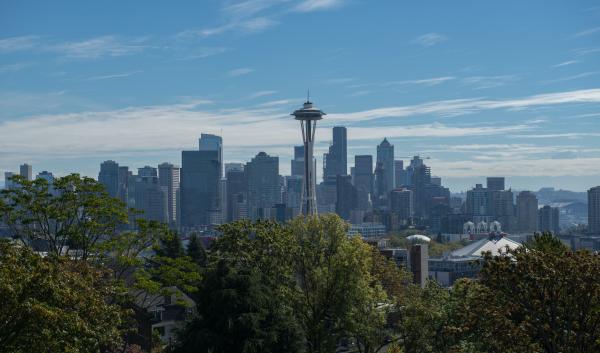Forests
The climate changes expected over the next century will have huge consequences for ecosystems and the benefits they provide, including the provision of wood and fuel, food, temperature and flood regulation, erosion control, recreational and aesthetic value, and species habitat, among others.
Climate changes are likely to affect important ecological processes that will, in turn, affect key natural resources. For example, temperature and precipitation changes could mean that insects, wildfire, invasive plants, and forest diseases will become more frequent in some areas of the country. The emissions that cause climate change also lead to air quality problems that put additional stress on trees.










